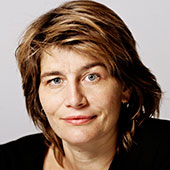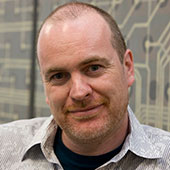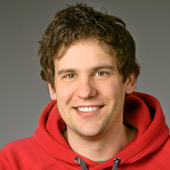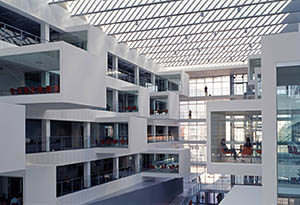Looking for details for a passed deadline or submission category? Please refer to the call for papers archive.
Workshop cancelled
Twenty academics and practitioners are invited to participate in a workshop in which we will explore various aspects of a practitioner-oriented template to describe methods for User Centered Design (UCD). The workshop starts with a theoretical background about method descriptions and user needs and preferences with regard to such descriptions. This is followed by an introduction to the online platform UCDtoolbox.com which facilitates method selection and where detailed information about UCD methods and tools can be obtained. Participants are asked to evaluate a number of the current method descriptions included in the UCDtoolbox and synthesize additional requirements for future versions of method descriptions.
Sunday October 14th, Afternoon
Janet C. Read, Ole Seger Iversen, Daniel Fitton, Matthew Horton, Rachel Charlotte Smith
This half-day workshop builds upon previous work by the authors in understanding and designing for teenagers where the initial concern was to understand cool. Expanding out from this work, the workshop proposers now seek to better understand all the activities around designing for teenagers – these being – gathering requirements from teenagers, iterating designs with teenagers, and evaluating with teenagers. This is a currently underrepresented population in Interaction Design yet it is an area where rich insights can be gained. This workshop aims to gather a deeper understanding of the design space around teenagers whilst also distilling the similarities and differences in terms of similar approaches for children and adults.
Sunday October 14th, from 09.00 to 12.30, in room 3A01
Sari Kujala, Michael Minge, Anna E. Pohlmeyer, Marlene Vogel
User Experience (UX) is an ongoing process and should not be limited to a single use situation. However, this is unfortunately often the case in HCI research. The goal of this workshop is to deepen and expand available knowledge with respect to temporal dynamics of UX. Relevant aspects will be the understanding of how UX is evolving over time, in particular across products and contexts, as well as the exploration of methods that can evaluate long-term UX in practice. For this, the organizers will prepare a booklet that introduces existing models and methods for long-term UX as a mutual basis for discussing critical experience phases that should be taken into consideration in product development. The booklet also summarizes pre-notes from participants, which will be collected prior to the workshop. In addition, during an interactive group activity, participants will reflect on the diversity of long-term UX of different product types. Participants from academia as well as from industry are invited in order to tackle the question of how to make research results and methods applicable in practice.
Sunday October 14th, from 09.00 to 12.30, in room 4A16
Stefan Schaffer, Julia Seebode, Monika Elepfandt, Robert Schleicher, Tuuli Keskinen, Tomi Heimonen, Markkuu Turunen
The workshop is intended to offer a platform for practitioners from academia and industry to share their experience with collecting and analyzing data on multimodal interaction. The goal of the workshop is to get an extensive overview and summary of useful metrics and data integration techniques for assessing multimodal interaction.
Sunday October 14th, from 09.00 to 17.00, in room 3A20+28
Aaron Houssian, Ingrid Mulder, Lillian Henze
Workshop cancelled, look for it at CHI 2013.
Due to increasing specialization in organizations and multidisciplinary team work, boundaries are becoming more explicit obstacles. Boundary objects have been proposed as means for crossing these boundaries. This workshop provides a forum for researchers and practitioners to share experiences and issues with crossing boundaries in multidisciplinary innovation projects. In particular, we seek to bring together people who have studied, built, or used boundary objects to facilitate communication across boundaries within or among teams, departments, companies, as well as design phases. The aim of the workshop is twofold. First, to draw a landscape of perspectives, experiences, and contributions regarding boundary crossing and gain understanding how artefacts can be used for boundary crossing highlighting their individual strengths and weaknesses. Second, to uncover what design (communication) can do in crossing these boundaries.
(this workshop will be run as a two-day event, please contact organizers for details)
Richard Coyne, Mariza Dima, Mark Wright
Engaging the audience has always been of fundamental importance to the creative sector (performing and visual arts, video games, film, interactive narrative etc). As more and more interactive technologies are employed to involve the audiences in all steps of the creation process, from audience journeys to models of co-creation, the value of the design process itself has become more central to achieving audience engagement. However, knowledge of methods and process for designing and evaluating audience engagement remains fragmented and incomplete. Acknowledging this lack of a coherent framework, the workshop will take an interdisciplinary approach to identify design strategies for audience engagement.
Sunday October 14th, from 09.00 to 17.00, in room 4A05
Andreas Holzinger, Martina Ziefler, Carsten Röcker
Research in the area of intelligent healthcare systems has reached a point where significant improvements are only possible if academics and practioners from various disciplines collaborate in order to develop new strategies for conceptualizing, designing, and implementing new applications. The underlying strategies must be harmonized and balanced in two ways: first, within the technological areas, and second, regarding the integration of technologies into the medical, cognitive, and social context. This also includes the way technology acts within the life courses of individuals and societies, and the balance of the benefits that technology brings against perceived or actual medical, social as well as ethical drawbacks. Therefore, this workshop aims to bring together researchers and industry practitioners from different fields to share their research positions and practical experiences and discuss new ideas, innovative approaches and challenging research questions, which have the potential to motivate future research activities within the field of intelligent healthcare systems.
Sunday October 14th, from 09.00 to 17.00, in room DesignLab
Olav w. Bertelsen, Lone Koefoed
Complex mediation structures in new and evolving fields of IT-use, liquefy the distinction between tool and material. Tools turn into materials, and objects of interest become instrumental mediators in the process of developing innovative use of software and in reshaping software itself. By changing perspective from triadic subject-instrument-object mediation to complex meditational structures, an analytical sensitivity for the evolving material qualities of software in use is opened. The goal of the workshop is to inspire and further discussions and new perspectives in the intersection between understanding the materiality of computing technologies and notions of participation in use and in design.
Sunday October 14th, from 09.00 to 17.00, in room 3A12+14
Anders Kluge, Teemu Leinonen, Anders Mørch, Li Zhu
Interactive learning environments can roughly be grouped in two: 1) graphic models of natural (physical, biological) phenomena and 2) social learning environments. The first is about user interfaces for learners to interact with simulations of aspects of reality (e.g. how a heat pump works). These are increasingly used as educational tools in science classrooms (de Jong, 2006; Holzinger et al., 2009). The other type is learning environments for social interaction, collaboration and inquiry (Rubens et al., 2005), and guided by conceptual frameworks like progressive inquiry and cultures of participation (Jenkins, 2006; Fischer 2009). These environments are also used outside of classrooms (e.g. Wikipedia). We see both kinds of learning environments as essential for full support of learning as they complement each other in significant ways. In this workshop we aim to explore their synergy and bring together researchers working in one or the other field with an interest in synthesizing previous work and developing a research agenda for integrated learning environments. We welcome both design proposals and empirical studies. The workshop has two additional goals: to investigate common possibilities for publication and to identify possible project ideas for further work.
Sunday October 14th, from 09.00 to 17.00, in room 4A22
Sabiha Ghellal, Annika Wiklund-Engblom, Simon Staffans
This one day workshop addresses current needs in the area of interactive broadcasting, scriptwriting, experience design, game design and transmedia storytelling, where experiences are extended across media types, platforms and environments. While interactive content consumption changes the ways in which we experience stories, existing content seldom manages to flow from non- interactive to interactive elements beautifully. In order to deal with potential media-discontinuity it is suggested to create “seamless” designs; however, there is little existing literature that deals with media-discontinuity within transmedia experiences. This workshop intends to bring together practitioners and researchers from various disciplines such as traditional storytellers, scriptwriters, broadcasters, 3D content producers, user experiences designers, game designers and TV producers in order to share experiences, discuss and further define seams in experiences for this emerging interdisciplinary new genre.
Sunday October 14th, from 09.00 to 17.00, in room 4A09
Naveen L. Bagalkot, Lars Rune Christensen, Tomas Sokoler, Erik Grönvall
This workshop will discuss and map-out the challenges posed by differences between the clinic and the home setting, for the design of digital technology for self-care. We aim to bring together researchers and professionals from HCI and design, and care- organizations to share their insights and experiences of being involved in various cases. We take these shared insights as the basis for exploring how the differences of various settings may influence the design of digital technology for self-care. We will collect these different perspectives in the form of selected position papers, posters, and summary of plenary discussions, and share it as an online repository for HCI researchers, professionals and students.
Sunday October 14th, from 09.00 to 17.00, in Designlab
Christina Hochleitner, Sandra Trösterer, Trenton Schulz, Susen Döbelt, Elke Beck, Manfred Tscheligi
Trust is increasingly important in several information communication technology (ICT) related areas. Nevertheless, there is still no unified definition of trust in technologies. In the presented full day workshop we want to bring researchers, experts, and practitioners together to discuss and create a more unified understanding and definition of trust, as well as related research areas and methods, as a basis for a working community. The main outcome of the workshop is the creation of a working definition of trust and the exchange and introduction to research and methods related to user-centered trust in interactive systems.
Sunday October 14th, from 09.00 to 17.00, in room 4A14
Heekyoung Jung, Tanyoung Kim
Data visualization has been a big interest among interaction designers thanks to the advances of visualization authoring tools. With the tools including programming languages, visualization generation websites, and open source libraries, interaction designers can easily create data visualization harnessing their prototyping skills and aesthetic sensibility. However, there still exist some technical and methodological challenges for interaction designers in jumping into the scene. In this workshop, we discuss new roles of designers in this interdisciplinary field, and the ways of using and enhancing visualization tools to support designers. We encourage experts in the intersection of data visualization and interaction design to share their experiences in designing interactive visualizations in both industry and academic contexts.
Sunday October 14th, from 09.00 to 17.00, in room 3A08
Effie Lai-Chong Law, Arnold P.O.S. Vermeeren, Silvia Abrahão, Ebba Thora Hvannberg
User Experience (UX) is an emerging research area pertaining to as well as extending beyond the traditional usability. Issues in the realm of usability may be amplified in UX because of its larger scope. Four key non-orthogonal issues are: definition, modeling, method selection, and interplay between evaluation and development. Leveraging the legacy of a series of earlier workshops, I-UxSED 2012 aims to develop a deeper understanding of how evaluation feedback shapes software development, especially when experiential qualities such as fun, trust, aesthetic values are concerned. Is feedback on these fuzzy qualities less useful for problem prioritization or less persuasive for problem fixing? This and other challenging questions will be explored in I-UxSED 2012 that brings together researchers and practitioners from two communities - HCI and Software Engineering.
Sunday October 14th, from 09.00 to 17.00, in room 2A12
Kasper Hornbæk, Mikkel R. Jakobsen, Daniel Klinkhammer, Anders Markussen, Roman Rädle, Harald Reiterer
Proxemics data describe users’ spatial relations to each other and to their environment. Such data can be automatically collected to allow new forms of interaction and to provide richer empirical data for studying human-computer interaction. With the growing interest in using proxemics, we propose a full- day workshop on the use of proxemics in human- computer interaction research. Through short presentations, brainstorming and discussion in break- out sessions, workshop participants identify and discuss challenges and develop directions for future research.
Sunday October 14th, from 09.00 to 17.00, in room 2A18
Thomas Binder, Eva Brandt, Lone Malmborg
This workshop is oriented towards experiences in design using communities of everyday practice and situated elderliness as a design approach. Originally the notion of communities of practice was used in the understanding of situated learning processes in organizations, but it has also become quite influential in participatory design as a way of understanding relations between different groups of users in a specific context [6]. In this workshop focus is on how we can use the notion of communities of practice notion as a design approach when working with elderly. The participants will share experiences, identify major challenges when working in this field, and discuss possible ways to approach these challenges.
Sunday October 14th, from 09.00 to 17.00, in room 3A18
Michael Smyth, Ingi Helgason
The workshop will explore the broad theme of gaining value from data exchange in a near-future urban setting. Through the generation of design scenarios, participants will focus on the possible human-level interactions that will occur during these activities. These interactions will be explored through the creation of lo-fi prototypes, informed by critical design and ethnographic methods. Participants will consider and discuss the merits and potential uses of this kind of approach with a view to the formation of future networks.
Sunday October 14th, from 09.00 to 17.00, in room 2A20
Aino Ahtinen, Jonna Häkkila, Stina Nylander, Yunan Chen, Ari-Heikki Sarjanoja, Pasi Välkkynen
People’s physical, mental, emotional and social wellbeing is important both for individuals as well as communities. Using technologies to encourage users to adopt healthy behaviors, become more active in exercising, engage in social activities and rehabilitate after illness or stress is becoming more and more common in HCI research. Examples of these emerging technologies include mobile phone applications, wearable sports tracking equipment, and social media. In this workshop we discuss the present and future of designing for interactive technology and applications aiming for wellness and behavior change. We bring together researchers and practitioners from research, academia and industry with experience and/or interest in user research, interaction design, or concept development in the domain.
Sunday October 14th, from 09.00 to 17.00, in room 2A14
Verena Fuchsberger, Ilhan Aslan, Christiane Moser, Manfred Tscheligi, Walter Buchinger, Judy Kay
Touch interfaces are promising not only for younger people, but also for older adults. However, it is challenging to design for this special user group, as there is only little knowledge whether older adults require a special design – and if, how it should look like. Therefore, this workshop should provide a platform for researchers and practitioners to discuss the design of touch interfaces for and with older adults, to closely look at the role of affordances, challenges and opportunities.
Sunday October 14th, from 09.00 to 17.00, in room 2A05
Steinar Kristoffersen, Nada Matta, Hilda TellioĞlu
Knowledge management has been recognized as a challenging, and sometimes deeply problematic term, which still remains to attract much attention in large areas of information systems and management science research. It has, however, being going largely under the radar of the HCI community, except perhaps in sporadic references to expert systems. The field is much broader, however, and we believe that is a systematic re-examination of it from a fresh angle. Not only is, the need to build IT solutions that support a knowledge-based way of work is greater than ever, but we also see the idea of knowledge being entertained as central in life outside work.
Sunday October 14th, from 09.00 to 17.00, in room 3A07
Mika Yasuoka, Torkil Clemmensen, Netta Iivari, Momoko Nakatani
The objective of this workshop is to share our experiences, identify themes, and examine unexplored topics about cultural impact on User Experience (UX) design and evaluation methods. The expected result is an establishment of an international community on this topic for collective learning. By accumulating knowledge through the international community, ultimately the workshop and the community will contribute to emerging demands to understand UX in services and products design domains internationally.
Sunday October 14th, from 09.00 to 17.00, in room 2A52
Heli Väätäjä, Thomas Olsson, Paula Savioja, Virpi Roto
How to facilitate designing for user experience? To design technology that is capable of enabling, promoting and demonstrating specific user experiences it is important to set experiential goals for the design. Such goal setting approach is receiving increasing attention as an approach in design and development of new products, services and systems. This workshop aims to bring together practitioners and academics to share knowledge and lessons learned on identifying, defining, using and drawing inspiration from user experience goals throughout the design process.
Sunday October 14th, from 09.00 to 17.00, in room 2A08
We are thrilled to present the following tutorials for NordiCHI 2012. The tutorials will take place on Sunday before the conference. Registration for tutorials is separate from the conference and they are open for participation to everyone without preparation. A more specific schedule for tutorials will be available shortly. For details, see information regarding conference venue and fees.
T1. Cross‐Cultural HCI: Theoretical Frameworks and Research Methods
Ravi Vatrapu
Information and communication technologies (ICT) are often designed under the implicit assumption that members of different cultures using different languages equally view a given functionality as appropriate for carrying out a given, or that another member observing a given act in an ICT environment interprets it as originally intended by the actor. Given that culture, language, cognition, and action are intricately intertwined, in a technology driven multi‐cultural and multi‐lingual world, it is an open empirical research problem that the human computer interaction (HCI) design and development aspects of ICT and collaboration systems still permeate with ethnocentric assumptions.
This comprehensive one‐day tutorial will consider the concept of culture, the different theoretical approaches and methodological traditions in social sciences with regard to investigating culture, their relevance to HCI, and the practical implications to Cross‐Cultural HCI research and practice. This tutorial seeks to systematically examine similarities and differences in the ICT lifecycle (design, development, deployment, adoption, use, impact, and evaluation) across different contexts such as cultures, languages, regions, nations, generations, socio‐economic classes, genders, organizations, and technologies. The objective of this tutorial is to develop increased understandings of the ways in which people appropriate ICTs, relate to, interact with, and form impression of each other via ICTs. The tutorial focus is on creating increased understanding and heightened awareness of research in and practice of ICT both locally and globally.
Intended audience
Academics, researchers, and practitioners. A particular focus on PhD students and HCI practitioners working in the global contexts.
Sunday October 14th, in room Aud2
Didier Chincholle, Caroline Hägglund, Johanna Hasslöf, Marcus Nyberg
In today’s telecom business, empowered users are getting harder than ever to win and keep. No one can afford not to use user-centred design and development approaches. However, delivering a great user experience in the simplest possible way is often a complex task. To succeed, one must understand and translate user needs, expectations, technical opportunities, and constraints into an adequate design. It requires developing solutions using user-centered design approaches where design, implementation and evaluations are performed in an iterative fashion. It involves cross-competences from project stakeholders such as interaction designers, application/product planners, software developers, system architects, marketing staff, managers and user researchers. These competences are involved in the design process, thus better contributing to a valid and feasible design, and helping designers to take the solution forward.
The aim of the tutorial is to provide the participants with a clearer definition of User eXperience, but also processes, frameworks, tools and ways of working to translate User eXperience into successful and appealing design. Participants will get an insight into the issues that surround the development of services and application and how to approach these from a user experience design point of view. The tutorial is based on the latest research and hands-on development of fix and mobile services at one of the telecommunication industry's largest companies. Its content has been developed and refined by the instructors based on experience gained over a period of several years while they have been employed in the telecom industry.
Intended audience
This tutorial is specifically designed for those who are interested or active in designing application and services for multiple platforms and devices. It is intended to appeal to a broad audience, such as designers, mobile service developers, network operators, service providers, usability specialists, and HCI researchers. The tutorial is intended for people with genuine interest or ground experience in either user interface design or usability work. No advanced technical expertise is required.
Sunday October 14th, in room 4A20
More than 20 years ago, Fred Brooks asked1: "is interface design itself an area of research, producing generalizable results?" He elaborated that a major issue that confuses and puzzles the human-computer interaction community is the tension between narrow truths proved convincingly by statistically sound experiments, and broad "truths", generally applicable, but supported only by possibly unrepresentative observations. That is, results indisputably true but disputably applicable, and results indisputably applicable but perhaps over-generalized. Brooks' question is still relevant.
In this tutorial, we will describe the view that the design of complex and novel interactive systems can itself be an area of research, complementing other forms of research, and that it is capable of producing useful and trustworthy results. We call this form of research design-based research, a method of inquiry aimed at exploiting the opportunities that design of complex interactive systems provides to advance our understanding about the problem we are solving, process we are following, and solution we are building. While many designers and researchers already conduct this form of research, and the idea of design-based research is not new2, up to date, there have not been many attempts to explicitly define this method. The main goal of the tutorial is to give participants better understanding about the scope and limitations of design-based research, and help them to critically review contributions of this kind.
Intended audience
Interaction designers, HCI researchers and practitioners, students, other professionals in the field.
Sunday October 14th, at 13.30 to 17.00 in room 4A16
T4. Speech-based interaction: Myths, challenges, and opportunities.
Cosmin Munteanu, Gerald Penn
Workshop cancelled
HCI research has for long been dedicated to better and more naturally facilitating information transfer between humans and machines. Unfortunately, humans' most natural form of communication, speech, is also one of the most difficult modalities to be understood by machines – despite, and perhaps, because it is the highest-bandwidth communication channel we possess. While significant research efforts, from engineering, to linguistic, and to cognitive sciences, have been spent on improving machines' ability to understand speech, the NordiCHI community has been relatively timid in embracing this modality as a central focus of research. This can be attributed in part to the relatively discouraging levels of accuracy in understanding speech, in contrast with often-unfounded claims of success from industry, but also to the intrinsic difficulty of designing and especially evaluating speech and natural language interfaces.
The goal of this course is to inform the NordiCHI community of the current state of speech and natural language research, to dispel some of the myths surrounding speech-based interaction, as well as to provide an opportunity for researchers and practitioners to learn more about how speech recognition and speech synthesis work, what are their limitations, and how they could be used to enhance current interaction paradigms.
Intended audience
The tutorial will be beneficial to all NordiCHI researchers or practitioners without a strong expertise in AASR or TTS, who still believe in fulfilling HCI's goal of developing methods and systems that allow humans to naturally interact with the ever increasingly ubiquitous mobile technology, but are disappointed with the lack of success in using speech and natural language to achieve this goal.
Cancelled
Participants in this course will learn how to conduct empirical research in human-computer interaction (HCI). As most attendees at HCI conferences will agree, a "user study" is the hallmark of good research in human-computer interaction. But, what constitutes a user study? By and large, a user study is an experiment conforming to the norms for empirical inquiry and the scientific method. It is founded on observation, measurement, and posing and answering testable research questions.
Attendees will learn about independent variables, dependent variables, within- and between-subjects conditions, counterbalancing, internal validity, external validity, etc. The course will also include an introduction to the most common statistical tool used for hypothesis testing in HCI: the analysis of variance. No prior experience or statistical knowledge is necessary. An ANOVA tool, written by the presenter in Java, will be provided to attendees through the course’s web site (URL to follow). In short, this course delivers an A-to-Z tutorial on conducting an empirical experiment (aka user study) in human-computer interaction.
Intended audience
This tutorial is intended for members of the HCI community who are interested in learning about, or refining their skill in, empirical research methods in human-computer interaction (HCI). The course will be of particular interest to researchers (including students) who are striving to conduct experiments (user studies) of new interfaces or interaction techniques, with the goal of publishing the results in a conference such as NordiCHI or the ACM’s annual SIGCHI conference.
Sunday October 14th, at 09.00 to 12.30 in room 5A09
Robin van Oorschot, Rosa Torguet, Behnam Chaboki, Ye Wu, Jerry Yao
The goal of the tutorial is to gain a new insight into human-product interaction. For that participants will be introduced to a tangible method ‘Tangible interaction frogger’ (TIF) developed by the authors that combines the theory from the ‘interaction frogger’ with a tangible tool. TIF brings teams together to discuss the interaction of products with focus on how actions from users are bridged to functionality in the product through feedback and feed forward as augmented or inherent information.
We are five designers/engineers from five different countries (China, Taiwan, Iran, Spain and the Netherlands). Together we are trying to find answers on the question: How to use the TIF to elicit a conversation about human-product interaction? In our work we bridge the gap between design theory and design practice, between designers and non-designers. We make design theory tangible and thereby useable. By working with a tangible model, users of the model can visually and tangibly express their ideas about interaction in human product interaction through moving the sliders of the TIF. Others can see this, change the position of the sliders and in this way discuss about interaction.
Intended audience
This tutorial is for everyone working in a design related field, so not necessarily designers but as well engineers, anthropologists, marketers etc.
Sunday October 14th, at 13.30 to 17.00 in room 5A09
















